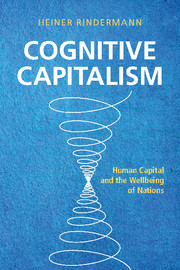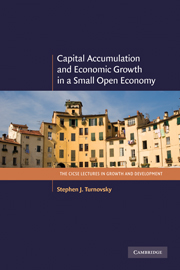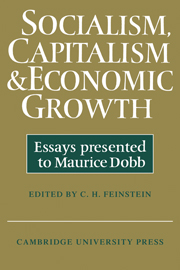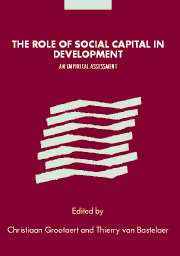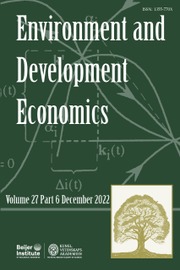Cognitive Capitalism
Nations can vary greatly in their wealth, democratic rights and the wellbeing of their citizens. These gaps are often obvious, and by studying the flow of immigration one can easily predict people's wants and needs. But why are there also large differences in the level of education indicating disparities in cognitive ability? How are they related to a country's economic, political and cultural development? Researchers in the paradigms of economics, psychology, sociology, evolution and cultural studies have tried to find answers for these hotly debated issues. In this book, Heiner Rindermann establishes a new model: the emergence of a burgher-civic world, supported by long-term background factors, furthered education and thinking. The burgher-civic world initiated a reciprocal development changing society and culture, resulting in past and present cognitive capital and wealth differences. This is an important text for graduate students and researchers in a wide range of fields, including economics, psychology, sociology and political science, and those working on economic growth, human capital formation and cognitive development.
- Addresses key issues of economy, society and politics from a multi-disciplinary perspective, for a variety of readers, scholars and researchers
- Uses both quantitative and qualitative approaches to offer clear and concise explanations on economic development for all readers
- Refrains from following a biased approach to politics, using a new, stimulating perspective to predict future economic development and offer suggestions to improve economic, political and societal developments
Reviews & endorsements
'In an era where most intelligent people are poorly informed about intelligence, Heiner Rindermann’s book is especially welcome. The title of the book effectively summarizes what is most crucial for the economic well-being of a people: Cognitive Capitalism. The author, who grew up in East Germany at a time when the Berlin Wall still stood, is the best-qualified person to integrate intelligence research with the literature on the determinants of economic growth.' Gregory Christainsen, Professor Emeritus, California State University, East Bay
'Cognitive Capitalism is a tour de force of the science of country level differences in cognitive ability. It raises important questions about the role of cognitive ability for culture, health, economics, education, technology, immigration and government. The theory of cognitive capitalism promises to inform our understanding of country level differences just as Darwin’s theory informed our understanding of individual differences.' Thomas R. Coyle, University of Texas, San Antonio
Product details
February 2018Paperback
9781107651081
592 pages
227 × 150 × 25 mm
0.92kg
57 b/w illus. 47 tables
Available
Table of Contents
- 1. Large wealth differences across time and nations
- 2. The wellbeing of nations
- 3. Human capital, cognitive ability and intelligence
- 4. International ability differences and their development
- 5. Why some are richer, freer and more democratic
- 6. History, culture and the burgher-civic world
- 7. Why cognitive factors are important – a theory of cognitive capitalism
- 8. The impact of cognitive-intellectual classes
- 9. Methodological research problems and solutions
- 10. Causes for national and historical differences in cognitive ability – and reciprocal effects
- 11. Global models for education, cognitive capital, production, wealth and wellbeing
- 12. Challenges of future development and first predictions
- 13. Models for cognitive and wealth development in twenty-first century
- 14. Summary, comparisons and suggestions
- References.

